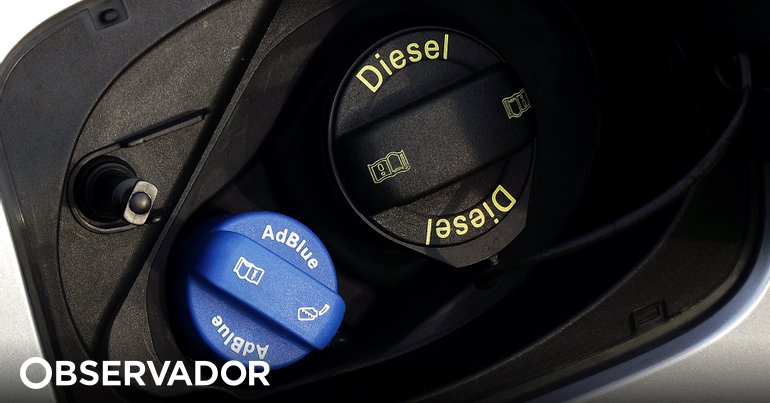Thank you for being our subscriber. Take advantage of ad-free cross-browsing.
The latest diesel cars use AdBlue, mainly an aqueous solution consisting of pure urea (32.5%) and demineralized water (the remaining 67.5%). Thanks to this solution, diesel engines equipped with SCR (Selective Catalytic Reduction) are able to meet the pollution control standards stipulated in Europe, such as a Injecting small amounts of this fluid into the exhaust system reduces nitrogen oxides by up to 90%. (nitrogen oxides) emitted into the atmosphere.
not an additive, NS AdBlue has its own deposit that needs to be refilled from time to time.. The range varies depending on fuel consumption and ambient temperature, but, on average, it is estimated that a diesel car consumes 1.5 to 2.5 liters of AdBlue per 1000 km traveled, so the period between these packages It will also vary depending on the tank size of the vehicle in question.
It turns out that the AdBlue offering is expected to become scarce, and therefore the price is likely to go up. And if increasing the value is a problem in itself, then running out of AdBlue in your deposit is an even bigger problem.. Anyone who ignores the warning light and does nothing runs the risk of tripping on SCR-equipped models. simply because, When the AdBlue tank is “dry”, the engine is electronically locked and does not start. In other models, the engine can only work in safe mode, that is, at low speed. With aggravation that this DEF (diesel exhaust fluid) is necessary for the proper operation of most diesel trucks after 2006, from trucks to buses, and light vehicles purchased from 2014 onwards.
To avoid the (bad) experience of turning the switch or pressing the starter and nothing happening, the best thing is to make sure you get the “miracle” liquid. currently, There are already places where the commodity has become scarce and the price has doubled. according to Trans.InfoAnd Three of Europe’s largest producers have suspended or reduced production of AdBlue, reflecting higher gas prices.
The perfect storm that caused electricity and gas prices to explode
Slovakian Duslo, Europe’s largest AdBlue manufacturer, has halted production, while Italy’s Yara and German SKW Piesteritz chose not to suspend, but to cut production. In the first case, the local government chose to order 500,000 liters and agree to the exclusive sale of the aqueous solution to carriers. In Italy, scarcity alerts were triggered, with demand exceeding supply, as a result of “panic” acquisitions. What is certain is that The price of AdBlue has doubled in this country: 1000 liters before the Yara plant stopped for a month it cost 250 euros, now it costs twice as much.
There is no indication of when production will return to “normal” and as the argument from AdBlue manufacturers is expected to continue to put pressure on the price of gas, it is feared that shortages and price increases will begin to emerge in more and more countries in Europe.

“Wannabe internet buff. Future teen idol. Hardcore zombie guru. Gamer. Avid creator. Entrepreneur. Bacon ninja.”

